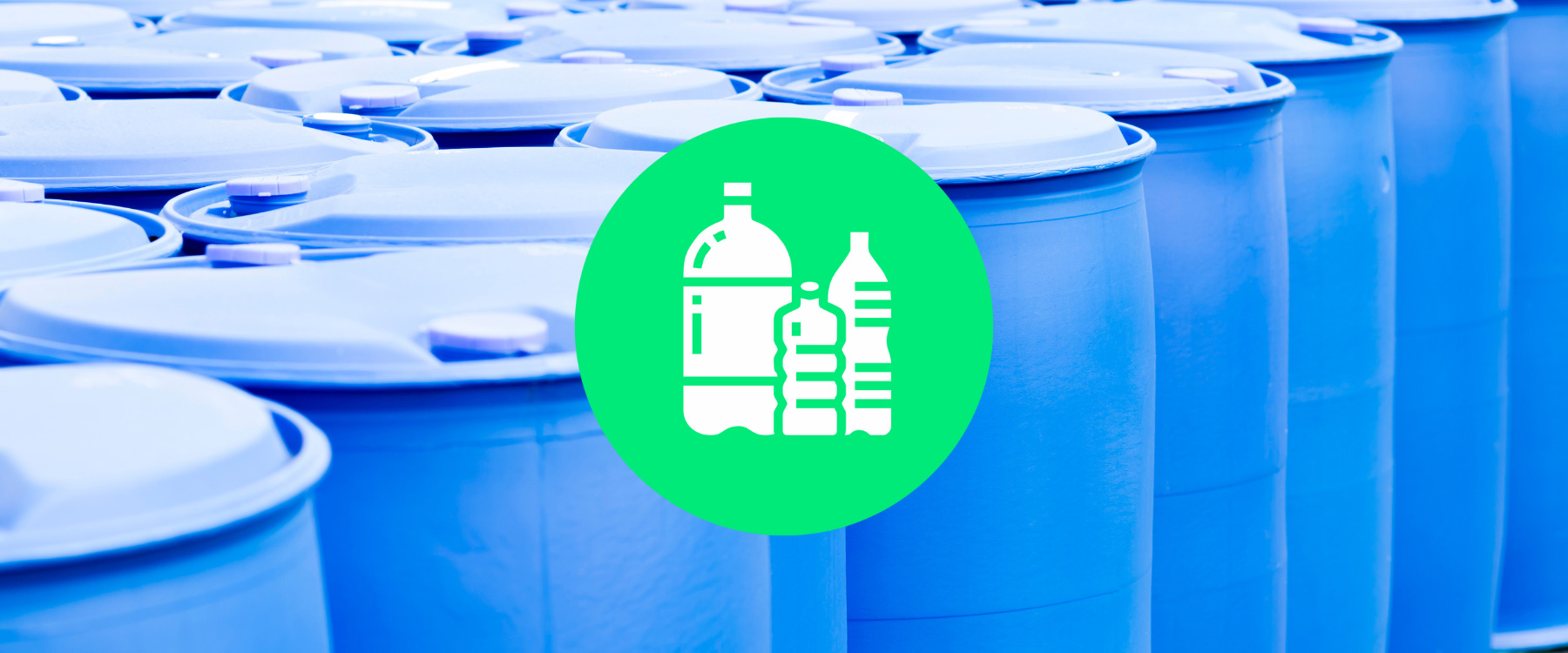Don't bin it! Ensure quality in every container.
Plastic containers are used in various industries, from food and beverage to logistics, so their quality and durability are vital.
Pre-shipment inspection of plastic containers and storage bins is a crucial quality assurance measure, ensuring products meet the highest standards before market release.
When it comes to shipping plastic containers and storage bins, ensuring the quality and compliance of the products is of utmost importance. As a responsible business owner or importer, you need to prioritize customer satisfaction and safeguard your reputation. One effective way to achieve this is through pre-shipment inspection.

Why do you need an inspection?
Plastic containers and storage bins play a crucial role in various industries, such as food and beverage, pharmaceuticals, and logistics. They are designed to protect and store valuable items, and any defects or flaws in their construction can lead to significant consequences. By conducting a pre-shipment inspection, you can ensure that the plastic containers and storage bins meet your specified quality standards. A professional inspector will thoroughly examine the products for any manufacturing defects, such as cracks, dents, or improper sealing. They will assess the material quality, dimensions, and structural integrity to guarantee that the products are durable and capable of withstanding regular usage. By detecting any issues before shipment, you can prevent receiving substandard products and mitigate the risk of customer complaints and product returns.
Compliance with Regulations and Safety Standards:
In today's global marketplace, compliance with regulations and safety standards is non-negotiable. Depending on your industry and the intended use of the plastic containers and storage bins, there may be specific regulations you need to adhere to, such as FDA regulations for food-grade materials or safety standards for hazardous material storage. A pre-shipment inspection helps ensure that your products comply with these requirements. An inspector will verify that the plastic containers and storage bins meet all the necessary regulatory standards and certifications. They will check for proper labelling, including identifying any warning symbols or product information required by law. By confirming compliance, you not only uphold your commitment to quality but also demonstrate your dedication to customer safety and regulatory compliance.
Avoiding Supply Chain Disruptions:
Unforeseen supply chain disruptions can be costly and time-consuming. They can delay your operations, strain relationships with customers, and adversely impact your bottom line. A pre-shipment inspection acts as a preventive measure, reducing the likelihood of such disruptions. By engaging an inspector, you can identify any potential issues early in the process. They will examine the packaging, labelling, and documentation to ensure that everything is accurate and complete. This includes verifying the number of products, checking the correct labelling of packages, and confirming that all necessary documentation, such as shipping permits and customs forms, is in order. A thorough inspection allows you to address any discrepancies or deficiencies before the products are shipped, minimizing the risk of supply chain disruptions, and associated financial losses.
Building Trust and Reputation:
Your brand reputation is built on trust and reliability. By consistently delivering high-quality products, you establish trust with your customers and strengthen your reputation within your industry. A pre-shipment inspection contributes to this process by instilling confidence in your customers and business partners. When you prioritize quality control through inspections, you showcase your commitment to delivering products that meet or exceed expectations. This proactive approach demonstrates your attention to detail and ensures that your customers receive products of consistent quality. By consistently meeting these standards, you can strengthen your relationships, generate positive word-of-mouth, and attract new customers.
An inspector conducting a pre-shipment inspection of plastic containers and storage bins would employ a combination of methods to ensure a comprehensive assessment. These methods may include:
Visual Inspection: The inspector will visually examine each plastic container and storage bin, looking for any visible defects, scratches, dents, or irregularities in the material and construction.
Dimensions and Measurements: Precise measurements of the containers' dimensions, such as length, width, height, and volume, are taken to verify compliance with specified requirements.
Material Analysis: The inspector may use various techniques, such as density tests or material composition analysis, to confirm the type and quality of plastic used in the containers.
Functionality Testing: Functional tests are performed to ensure the containers' lids, locks, and closures work correctly, guaranteeing secure storage and preventing any accidental spillage.
Drop and Impact Tests: To assess durability, the inspector may conduct drop and impact tests to simulate real-world scenarios and evaluate the containers' ability to withstand rough handling during transportation.
Load Capacity Evaluation: Testing the containers' load-bearing capacity helps ensure they can safely hold the intended weight without deformation or failure.
Seal Integrity: For containers with sealing features, the inspector will check for proper sealing to prevent leakage and contamination.
Labelling and Marking Verification: The inspector will confirm that all required labels, markings, and product information are accurately displayed on the containers, in adherence to relevant regulations and safety standards.
Quantity Check: The number of containers in each shipment will be verified against the agreed-upon quantity to prevent any discrepancies.
Packaging Inspection: The inspector will assess the packaging materials used to protect the containers during transportation, ensuring they provide adequate protection from damage.
Documentation Review: All necessary documentation, such as inspection certificates, shipping permits, and customs forms, will be carefully reviewed to ensure completeness and accuracy.
Random Sampling: Depending on the batch size, the inspector may use a statistically valid sampling process to assess representative units from the shipment.
Environmental and Safety Compliance: The inspector will also verify whether the containers and storage bins meet any environmental or safety requirements relevant to the industry or intended use.
By combining these inspection methods, the inspector can offer a comprehensive evaluation of the plastic containers and storage bins, assuring their quality, compliance, and overall suitability for shipment.











